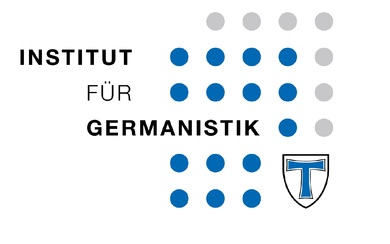Institute for German Philology at the Justus Liebig University in Gießen
Justus-Liebig-Universität Gießen Fachbereich 05 - Sprache, Literatur, Kultur Institut für Germanistik
Otto-Behaghel-Straße 10 B35394 Gießen
Institute for German Philology at the Justus Liebig University in Gießen
The Institute for German Philology at the Justus Liebig University in Gießen researches a broad range of subjects from the perspectives of literary historical, cultural science and literary and media didactics.
Exile – in particular its current significance – is examined as part of various individual projects and collaborations. This has given rise to close co-operation between the institute and the German PEN Center. The fruits of this work can be seen in the regular events featuring current scholars of the “Writers-in-Exile” programme of the German PEN Center as well as students and lecturers from the institute. Participation in the “Arts in Exile” network project is another result of the close co-operation between the Institute for German Philology and the PEN Center.
The past and present perspectives of exile are constant components of the seminars on offer and have also resulted in the founding of the “Gefangenes Wort e.V.” [Imprisoned Word Society], which is run as a student initiative.
Working together with the Literarisches Zentrum Gießen they organise readings and events that focus on the themes of exile and the Nazi era.
The individual professorships have research projects that examine the earlier and the present interpretations of the Holocaust and National Socialism from literary science, cultural theory and literature and media didactics perspectives.
The Institute's Holocaust Literature Research Unit gives it a particular focus on holocaust research that is closely related to the theme of exile. The aim of this research unit is to undertake literary and didactic examinations and treatments of Holocaust literature texts. Among its tasks is the critical discussion of reception processes. The research unit wishes to contribute to broadening the range of discussion of Holocaust literature texts in this way.
Profile of the Institute
In the Institute for German Philology the core areas of literary studies, linguistics and didactics co-operate in many ways in their teaching and research. In addition, the interdisciplinary professorships for applied linguistics and computer linguistics, German as a foreign and second language and comparative literature mean that the institute has a highly innovative profile.
Among the Institute’s special features are particular dedication to training doctoral students, especially in close co-operation with the GCSC (International Graduate Center for the Study of Culture) and the integration of German philology research in inter-disciplinary research institutes.
Another special feature of the institute is the B.A. Studies course in German Philology and the M.A. Studies course in “German Literary Studies” with its modules in the area of “Literature and cultural practice”. The respective emphases of the modules allow for a wide range of skills in different cultural areas and vocational fields to be taught. The differing themes, including literary mediation, journalism, archive and museum work and public relations and communications concepts are conducted in close co-operation with numerous institutions, allowing students to gather contacts to publishing houses, archives, museums, radio stations and marketing agencies.
Current or already completed projects (selection):
Institute for Holocaust literature
Federführung bei dem Forschungsprojekt GeoBib: Frühe deutsch- bzw. polnischsprachige Holocaust- und Lagerliteratur (1933-1949) – annotierte und georeferenzierte Online-Bibliographie zur Erforschung von Erinnerungsnarrativen
Edition und Auswertung von Texten aus dem Getto Lodz/Litzmannstadt, allen voran der Chronik des Gettos. (Wallstein Verlag 2007, online 2011)
Edition der Tagebücher Friedrich Kellners (Wallstein Verlag 2011)
Edition des Exil-Berichts von Konrad Heiden zur Reichspogromnacht (Wallstein 2013)

